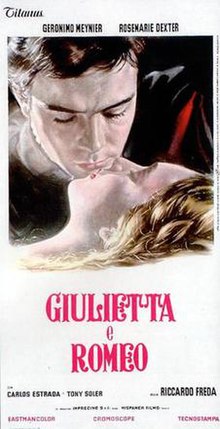
Romeo and Juliet is a tragedy written by William Shakespeare early in his career about the romance between two Italian youths from feuding families. It was among Shakespeare's most popular plays during his lifetime and, along with Hamlet, is one of his most frequently performed. Today, the title characters are regarded as archetypal young lovers.

Gian Franco Corsi Zeffirelli was an Italian stage and film director, producer, production designer and politician. He was one of the most significant opera and theatre directors of the post–World War II era, gaining both acclaim and notoriety for his lavish stagings of classical works, as well as his film adaptations of the same. A member of the Forza Italia party, he served as the Senator for Catania between 1994 and 2001.

Romeo and Juliet is a 1968 period-drama film based on the play of the same name by William Shakespeare. Directed and co-written by Franco Zeffirelli, the film stars Leonard Whiting as Romeo and Olivia Hussey as Juliet. Laurence Olivier spoke the film's prologue and epilogue and dubs the voice of Antonio Pierfederici, who played Lord Montague but was not credited on-screen. The film also stars Milo O'Shea, Michael York, John McEnery, Bruce Robinson, and Robert Stephens.

Riccardo Freda was an Italian film director. He worked in a variety of genres, including sword-and-sandal, horror, giallo and spy films.

The Horrible Dr. Hichcock is a 1962 Italian horror film, directed by Riccardo Freda and written by Ernesto Gastaldi. The film stars Barbara Steele and Robert Flemyng.
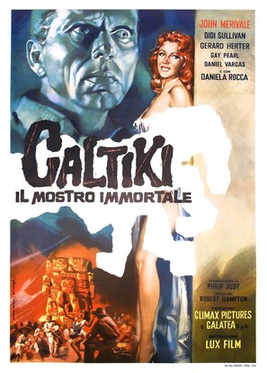
Caltiki – The Immortal Monster is a 1959 black-and-white science fiction-horror film with similarities to The Blob that was released in the previous year. The film's storyline concerns a team of archaeologists investigating Mayan ruins, who come across a creature that is a shapeless, amorphous blob. They manage to defeat it using fire, while keeping a sample of the creature. Meanwhile, a comet, which previously passed near the Earth around the time of the collapse of the Mayan civilization, is due to return, raising the possibility of a connection between the creature and the comet.
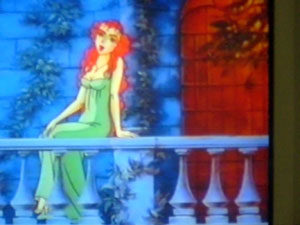
William Shakespeare's Romeo and Juliet may be one of the most-screened plays of all time. The most notable theatrical releases were George Cukor's multi-Oscar-nominated 1936 production Romeo and Juliet, Franco Zeffirelli's 1968 film Romeo and Juliet, and Baz Luhrmann's 1996 MTV-inspired Romeo + Juliet. The latter two were both, at the time, the highest-grossing Shakespeare films. Cukor featured the mature actors Norma Shearer and Leslie Howard as the teenage lovers while Zeffirelli populated his film with beautiful young people, and Baz Luhrmann produced a heavily cut fast-paced version aimed at teenage audiences.
William Shakespeare's play Romeo and Juliet, set in Verona, Italy, features the eponymous protagonists Romeo Montague and Juliet Capulet. The cast of characters also includes members of their respective families and households; Prince Escalus, the city's ruler, and his kinsman, Count Paris; and various unaffiliated characters such as Friar Laurence and the Chorus. In addition, the play contains two ghost characters and an unseen character (Rosaline).
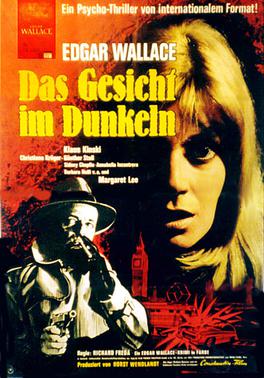
Double Face is a 1969 thriller film directed by Riccardo Freda and starring Klaus Kinski, Christiane Krüger and Annabella Incontrera. It is part of the series of Edgar Wallace adaptations made by Rialto Film.

Les Miserables is a 1948 Italian drama film directed by Riccardo Freda. It is based on the Victor Hugo's 1862 novel Les Misérables and stars Gino Cervi as Jean Valjean, Valentina Cortese as Fantine and Cosette, and Hans Hinrich as Javert. After the financial success of Freda's previous film The Black Eagle, Freda worked a deal with Lux Film and began developing an adaptation of Les Misérables with Mario Monicelli, Vittorio Nino Novarese and Stefano Vanzina. The film was shot entirely in Rome.
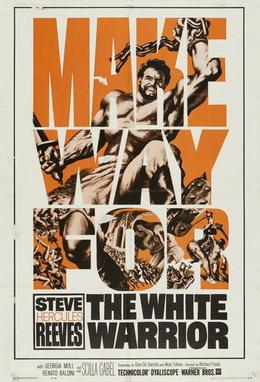
The White Warrior is a 1959 adventure film directed by Riccardo Freda. It is loosely based on Lev Tolstoy's posthumously published 1912 novel Hadji Murat.
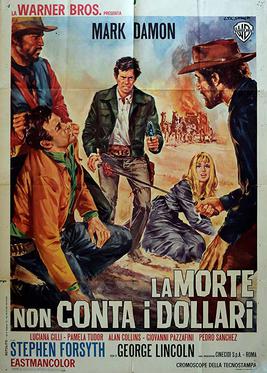
La morte non conta i dollari 1967 Italian spaghetti western film directed by Riccardo Freda. The film is about Lawrence White who returns to his hometown of Owell Rock with his sister to avenge the father's death at the hands of a gang. The leader of the gang, Doc Lester has recently appointed himself the gunslinger Boyd as the new sheriff.

The Black Eagle is a 1946 Italian historical adventure drama film directed by Riccardo Freda and starring Rossano Brazzi, Irasema Dilián and Gino Cervi. It was released as Return of the Black Eagle in the United States. The film is based on the unfinished 1832 Russian novel Dubrovsky by Alexander Pushkin (1799–1837). It was followed by a 1951 sequel Revenge of the Black Eagle, also directed by Freda.

Guarany is a 1950 Italian film directed by Riccardo Freda and starring Antonio Vilar, Mariella Lotti and Gianna Maria Canale.

Murder Obsession, a.k.a. Fear, is a 1981 Italian giallo-horror film directed by Riccardo Freda, and starring Laura Gemser and Anita Strindberg.

The Magnificent Adventurer is a 1963 adventure film directed by Riccardo Freda. It is loosely based on real life events of Benvenuto Cellini.

Trap for the Assassin is a 1966 French crime film directed by Riccardo Freda and starring Georges Géret, Irene Papas and Jean-Pierre Marielle. It is an adaptation of the 1886 novel Roger la Honte by Jules Mary.

Trapped in Tangiers is a 1957 spy film directed by Riccardo Freda and starring Edmund Purdom.
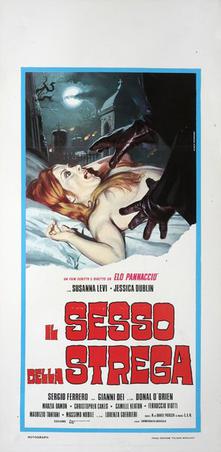
Sex of the Witch is a 1973 Italian erotic gothic horror film directed by Angelo Pannaccio and starring Susanna Levi, Jessica Dublin, Sergio Ferrero, Donald O'Brien, and Camille Keaton.
